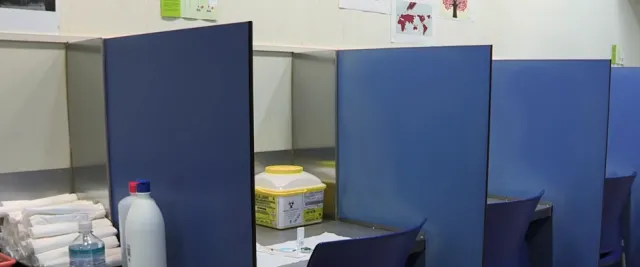MOTI-4: Motivational Interviewing, self–monitoring, and strengthening behavioural control to reduce cannabis use
At a glance
Country of origin
- Netherlands
Level(s) of intervention
- Indicated prevention
Moti 4 is based on motivational interviewing (MI). The intervention is aimed at the reduction of problematic substance use (Adriana, 2020). The theoretical basis of MI is drawn from client-centred therapy and social cognitive theory. MI includes empathetic listening to reflect on drug use within the context of the participant's goals and values. It is important for the practitioner to direct their attention towards resolving ambivalent issues and eliciting the participant's own perspective.
Keywords
No dataLinks to this programme in other registries
Implementation Experiences
Read the experiences of people who have implemented this programme.Contact details
Moti-4 Research Project Coordinator Maastricht University/VPN/Mondriaan,
Waldeck Pyrmontsraat 53, 6224 LM Maastricht, The Netherlands
2CAPHRI, School for Public Health and Primary Care, Maastricht University,
Maastricht, The Netherlands
Overview of results from the European studies
Studies overview
Moti-4 has been evaluated in one randomized controlled trial in the Netherlands for cannabis usage (Dupont et al., 2016) and there is one pilot study on the effects of Moti-4 on problematic gambling or gaming behaviour (Dupont et al. 2015).
In the RCT (Dupont et al., 2016) a wide array of young adults aged 14-24 years were eligible to participate in Moti-4. This study showed that Moti-4 had a significant positive influence on the indirect measure of money. The stated weekly spend on cannabis was reduced (between T0 and T1 (post-test) p = 0.002; between T0 and T2 (6-month follow-up) p = 0.007). The number of joints smoked weekly was also reduced significantly after six months compared to baseline (p = 0,004). There was no significant reduction concerning weekly smoked joints found directly after the intervention (between T0 and T1, p = 0.932). This study suggests that Moti-4 can be an effective intervention to reduce cannabis use in youth at the 6-month follow-up, but did not include a 12-month follow-up.
Countries where evaluated
- Netherlands
Characteristics
Protective factor(s) addressed
- Individual and peers: refusal skills and decision making
Risk factor(s) addressed
- Individual and peers: favourable attitude towards alcohol/drug use
Outcomes targeted
- Substance use
- Use of illicit drugs
Description of programme
Moti-4 is a type of MI practiced in the Netherlands (https://moti4.nl/en/), (https://www.nji.nl/interventies/moti-4). The ‘4’ refers to the four one-hour individual sessions over one month conducted by an addiction prevention worker. It is a low-threshold counselling intervention for adolescents who are at risk of developing issues related to substance use, gambling, or gaming. This intervention consists of four individual sessions including the adolescent and a trained practitioner. In the first session an identification of problems and substance use is carried out. The follow-up interviews focus on knowledge transfer, awareness-raising, motivating discussions and strengthening the adolescent's resilience. The participant is supported by the prevention worker in drawing up an action plan. Through a follow-up after two months and possibly also after 6 months, it is checked whether the objectives from the action plan have been achieved (Adriana, 2020). In 2015 a pilot test of Moti-4 was conducted to assess its feasibility and its effectiveness (Dupont et al., 2015).












